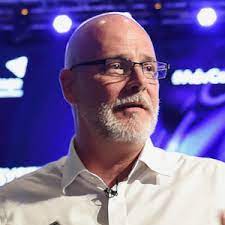 Festive Road managing partner Paul Tilstone considers the momentum driving sustainable practices and projects it could be the wave that finally transforms industry, including travel.
Festive Road managing partner Paul Tilstone considers the momentum driving sustainable practices and projects it could be the wave that finally transforms industry, including travel.
We’ve been here before.
Sustainability has previously dominated the discussion.
Back in 2006, when the
first real wave started to happen, companies rushed to develop their latest
sustainability rhetoric. This was the time of “greenwash” where noise attracted
attention, visuals mattered (exhibition booths had green-grass carpets) and the
carbon offsetting wild-west was kick-started.
But it didn’t last
long. The global credit crisis of 2008 stopped sustainability in its tracks,
favoring financial survival. Most of us understood. Money mattered more, that’s
just how it was.
Then, in the mid
2010s sustainability started its comeback. Slowly and surely, as businesses
and economies started to recover to their former glories, increased climate
change and louder, more powerful voices (think: Greta
Thunberg's unwavering style) started to drive deeper change and commitments.
Climate change moved to climate crisis and even those who had
previously denied its importance started to see. But the pace was still slow,
and frustrating to those who believed that faster change must happen.
Then the pandemic hit.
The noise stopped, the
flowers bloomed and the birds sang. The skies were clear. Whilst we looked up
and longed to see those metal birds on their journeys to long-distance places, we
also knew things had changed, possibly forever, and that we couldn’t go back.
Now, as we begin to return
to the skies, the roads and the rooms, companies are committing to ever-more-challenging
sustainability targets, and Scope 3 emissions (which includes travel) are in
the line of fire. Leaders have seen what happens when you stop traveling, the
good and the bad. Many sense that the 2019 will act as benchmark for
over-consumption, that business travel as it returns must be different, must be
more purposeful and thought through. They sense that the planet matters as much
as their people, and that even if it matters less to them, it matters more to
their customers.
Travel buyers are
telling us in interviews that “zero up” makes all the difference to their
corporations. It’s far easier to control the release of travel than it was to
dampen existing demand pre-pandemic. Sustainability is at the core of many of
the present, more purposeful approaches to travel program demand.
Of course, we’re
likely to see some bounce-back to pre-pandemic levels as the floodgates open. People
like travel, many want to travel and travel brings their businesses value. But in
the mid to long term, buyers are aligning with their environmental, social governance
(ESG) leads, considering the true “need versus the want” of travel and focusing
on reducing demand, reducing emissions and balancing people, planet and profit
more than ever before.
Recently, one bank’s
analyst told us that they monitor the amount of times environment is mentioned
on company earnings calls. It was the highest it had ever been in 2019 and they
are beginning to see the numbers reach total 2019 levels now—even just half-way
through 2021.
The list of CEOs
committing to net zero is getting bigger every day. It’s becoming a must-have
and even a competitive advantage as companies clamor to provide ever bigger
commitments. This will set our travel management landscape. It already is.
Closer to home, our
own research shows that 67 percent of buyers want to understand more about the sustainability
approach of TMCs in the sourcing process and 89 percent of buyers are more
interested in seeing sustainability services from their TMCs. The value chain
needs to adjust.
This third wave will
likely be the last, as our global carbon budgets are rapidly diminishing, and
the impact to our industry deep and transformative. There’s lots of great
initiatives in play, from electric cars to sustainable aviation fuel. And a
sector which becomes greener is good for us all. But if you thought change was
happening fast before, you’ll be shocked at how fast it will move from now on.
Get ready to ride the
wave.